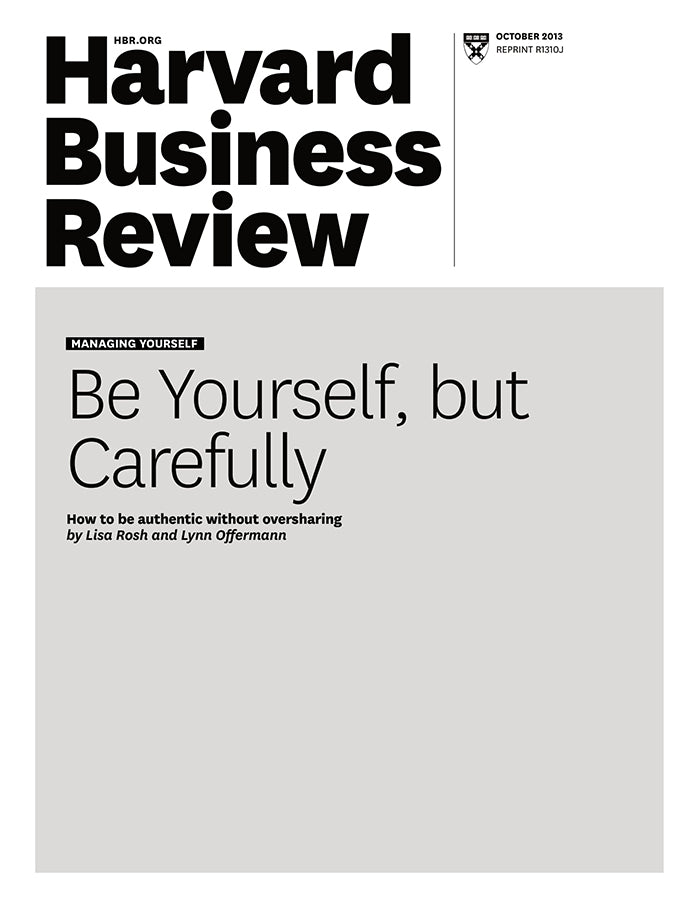Be Yourself, but Carefully
受取状況を読み込めませんでした
A rise in collaborative workplaces and dynamic teams over recent years has heightened the demand for "authenticity" and "instant intimacy," and managers are supposed to set an example. But sharing thoughts, feelings, and experiences at work can backfire if it's hastily conceived, poorly timed, or inconsistent with cultural or organizational norms. Getting it right can be challenging for leaders at any stage of their careers. The authors draw on four decades' worth of research in social and organizational psychology to look at common mistakes executives make when they're trying to be authentic and to offer a five-step plan for moving toward more-effective self-disclosure: (1) Set the foundation with self-knowledge. The best approach is to solicit honest feedback from coworkers and follow it up with coaching. (2) Consider relevance to the task. Before sharing personal information, ask yourself if it's germane to the situation. (3) Keep revelations genuine. Making up or exaggerating stories is easily discovered and can damage credibility. (4) Understand the organizational and cultural context. Some societies are more inclined than others to disclose personal information. (5) Delay or avoid very personal disclosures. First take note of how open others are. The authors include a tool to help you assess when and when not to share.
【書誌情報】
ページ数:7ページ
サイズ:A4
商品番号:HBSP-R1310J
発行日:2013/10/1
登録日:2013/10/2


